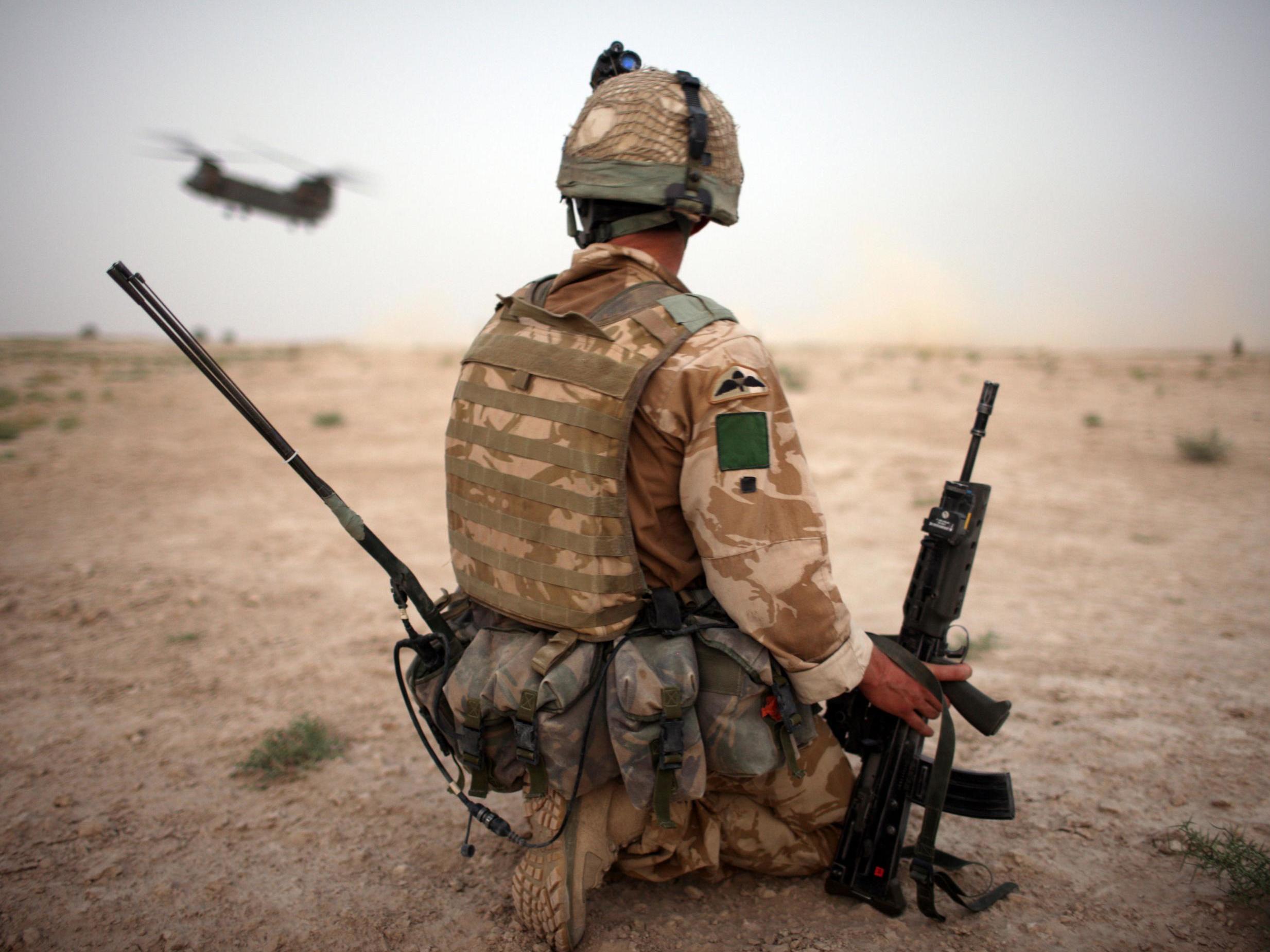Rates of PTSD among armed forces rising, study finds
Condition seen in military veterans deployed to Iraq and Afghanistan

Your support helps us to tell the story
From reproductive rights to climate change to Big Tech, The Independent is on the ground when the story is developing. Whether it's investigating the financials of Elon Musk's pro-Trump PAC or producing our latest documentary, 'The A Word', which shines a light on the American women fighting for reproductive rights, we know how important it is to parse out the facts from the messaging.
At such a critical moment in US history, we need reporters on the ground. Your donation allows us to keep sending journalists to speak to both sides of the story.
The Independent is trusted by Americans across the entire political spectrum. And unlike many other quality news outlets, we choose not to lock Americans out of our reporting and analysis with paywalls. We believe quality journalism should be available to everyone, paid for by those who can afford it.
Your support makes all the difference.Post-traumatic stress disorder (PTSD) rates have increased among members of the UK armed forces, new research suggests.
The overall rate of probable PTSD among current and ex-serving military personnel was 6 per cent in 2014-16, compared with 4 per cent in 2004-06.
The rise in the condition, which is triggered by exposure to traumatic events involving threat to life or limb, was mainly seen in military veterans deployed to Iraq and Afghanistan, the researchers said.
The findings are from the third phase of a major cohort study by King’s College London, which has been running since 2003 and is funded by the Ministry of Defence.
The rate among the civilian population is around 4 per cent.
Sir Simon Wessely, senior author and professor of psychiatry at King’s College London, said: “Our results suggest the risk of mental ill-health is carried by those who have left the service, and that part of the legacy of conflicts on mental health has taken time to reveal itself.
“However, it would be wrong to say there is a ‘bow wave’, ‘tsunami’ or ‘time bomb’ of PTSD in the UK military and veteran community.
“The study supports the current focus on providing and improving mental health services for both serving personnel and veterans.”
In 2014-16, the rate of probable PTSD among ex-regular veterans was 7.4 per cent, compared to 4.8 per cent among those currently serving as regular personnel, the study found.
Former military personnel deployed to Iraq and Afghanistan were more likely to report the symptoms of PTSD.
For those veterans the rate of PTSD was 9.4 per cent, compared to 5 per cent among those who did not participate in the two conflicts, the research found.
Former serving military personnel deployed in a combat role were found to have higher rates of PTSD at 17.1 per cent, compared with 5.7 per cent of those who had been in a support role such as medical, logistics, signals and aircrew.
Lead author Dr Sharon Stevelink, of the Institute of Psychology, Psychiatry and Neuroscience, said: “For the first time we have identified that the risk of PTSD for veterans deployed in conflicts was substantially higher than the risk for those still serving.
“While the increase among veterans is a concern, not every veteran has been deployed – and, in general, only about one in three would have been deployed – in a combat role.”
The researchers said one reason PTSD may be more common among veterans is because personnel who are mentally unwell are more likely to leave the armed forces.
Dr Stevelink added: “We have been talking more and more about mental health, so veterans may feel more confident to come forward and say ‘actually I’m struggling with my mental health and I need to get some care’.”
Rates of common mental disorders have remained at about 20 per cent between 2004-06 and 2014-16 while alcohol misuse has fallen from 15 per cent to 10 per cent.
The prevalence of common mental health disorders in 2014-16 was 30.7 per cent among veterans deployed to Iraq or Afghanistan in combat roles, compared with 18.8 per cent among those who had support roles.
Professor Wendy Burn, president of the Royal College of Psychiatrists, said: “It is vital that we meet the growing demand for military and veteran mental health services so that those who serve their country can easily access care while in service and afterwards.
“Thankfully, more military personnel are asking for the care they need.”
A government spokesperson said: “We take the wellbeing of our personnel extremely seriously and we fund research so we can continue to improve the way we support them.
“Military personnel receive stress management training before, during and after operational deployments, and consultant psychiatrists are available by phone 24/7, should individuals require support.
“We encourage anyone struggling to come forward and seek help, including through our two 24-hour helplines, and veterans can access specialist medical care through the NHS.”
The findings, based on questionnaire responses from more than 8,000 current and former members of the armed forces, have been published in the British Journal of Psychiatry.
PA
Join our commenting forum
Join thought-provoking conversations, follow other Independent readers and see their replies
Comments